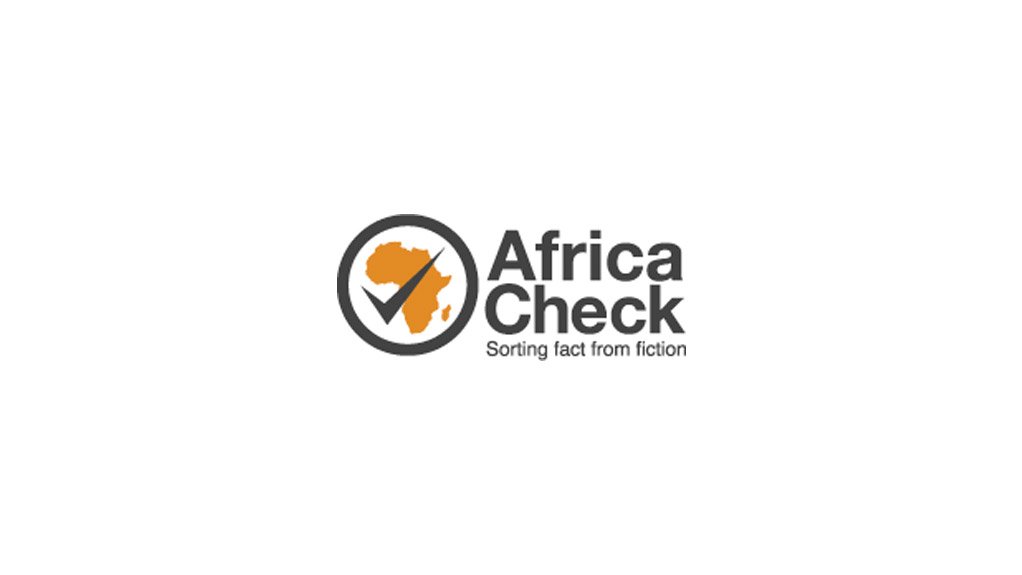In recent months, eye-popping amounts of cash have been recovered in various parts of Nigeria, following a clutch of new laws aimed at fighting corruption.
In one such find in February, US$9.77-million was seized on a property belonging to a former director of the state’s oil company NNPC, together with a separate sum of £74 000.
Commenting on this, Nigeria information minister Lai Mohammed said that the recovered money could have provided much-needed public infrastructure.
“Nigerians will appreciate more the grave and dire consequences of corruption when they consider that the US$9.2-million found in a village house in Southern Kaduna can finance the construction of one health centre in each of the 774 local governments in Nigeria and fund them for one year,” he said. (Note: His figure was less than the official amount of US$9.77-million given by the state anti-corruption agency.)
But in seeking to contextualise this issue, was the minister accurate in saying that US$9.2-million could build and run nearly 800 health centres in Nigeria, Africa’s most populous country?
We took out our calculators.
What kinds of health centres does Nigeria have?
When converted to the local naira currency, the minister’s US$9.2 amount is about N2.82-billion, based on the official N306/$ rate of the Central Bank of Nigeria.
We asked the minister’s office to clarify which type of health institution he was referring to but his staff is yet to respond.
This is because in Nigeria, there are 5 types of health institutions, according to the National Primary Health Care Development Agency.
The agency’s minimum standards for primary health care list the following:
- Type 1: Health posts expected to serve a village or neighbourhood of about 500 people,
- Type 2: Primary health clinics which are expected to cater for a group of villages or neighbourhoods with a population of 2,000 t0 5,000 people,
- Type 3: Primary health centres for each of Nigeria’s 774 local governments. With each having at least 10 wards, over 7,740 of these are expected across the country,
- Type 4: General hospitals which are managed by state governments and are expected to be located in each of the 774 local government areas,
- Type 5: Tertiary or teaching hospitals managed by the federal government, with one expected in each of the 36 states and in the Federal Capital Territory.
What is the cost of constructing them?
We asked the primary health care agency, which is charged with constructing type 1, 2 and 3 health institutions for this information, but they are yet to respond.
However, using Freedom of Information requests and analysis by transparency campaign group Public Private Development Centre, we gleaned information from the agency’s procurement documents and contract awards.
The documents show a partial list of primary health institutions built between 2001 and 2014 across the country and whether they have been completed. In 2014, for example, government awarded 89 contracts worth N2.6-billion for the construction of type 1, 2 and 3 primary health institutions.
The list shows that a completed type 1 health post was erected in the Tsanyawa local government area of Kano state for N21.99-million. Another in the state’s Tundun Wada local government area was put up for the same amount.
A type 2 health clinic was completed in the Ohimini local government area of Benue state for N20-million while 2 more were constructed in Ife Central area of Osun state and in Ogun state’s Ijebu North local council for N21-million each.
As for type 3 centres, one was erected in Gwer East local government area of Benue State for N18.42-million and another in Ajah, Eti Osa area of Lagos State for the same amount. (Note: It is not clear why a type 3 centre is less costly than type 1 or 2 facilities.)
Math doesn’t add up
All these contracts were awarded in 2014. Without accounting for a rise in prices, such as that of building materials, transport or labour, this suggests that between N18-million to N22-million could build a type 1, 2 or 3 institution.
Using this reference year, the minister’s amount of N2.82-billion could build between 128 and 156 of the type 1, 2 or 3 health centres.
For the minister’s figure to add up, each institution would need to be constructed at a cost of only about N3.64-million, based on the 2014 contract comparisons.
This excludes operating costs for a year. A general duty doctor at entry level is paid N1.31-million a year, excluding allowances. To pay 774 doctors at this level would cost an estimated N1-billion.
Conclusion: No more than 170 health centres could have been put up
Nigeria president Muhammadu Buhari’s administration has been keen to show progress towards fighting corruption, a major challenge in the country.
In one case, at least US$9.7-million was retrieved, which the country’s information minister said was enough to build nearly 800 new health centres and run them for a year.
The available data shows it costs between N18-million to N22-million to build one of the 3 kinds of primary health facilities in Nigeria. Using the minister’s incorrect figure of US$9.2-million, no more than 160 centres could have been built – and this is without providing for their running costs. (Note: At US$9.77-million, 166 health centres could be built at 2014 prices.)
While the cost of corruption to Nigeria is of serious concern to its citizens, information used to debate the issue should also be accurate.
Researched by David Ajikobi, Africa Check, a non-partisan organisation which promotes accuracy in public debate and the media. Twitter @AfricaCheck and www.africacheck.org
EMAIL THIS ARTICLE SAVE THIS ARTICLE
To subscribe email subscriptions@creamermedia.co.za or click here
To advertise email advertising@creamermedia.co.za or click here











